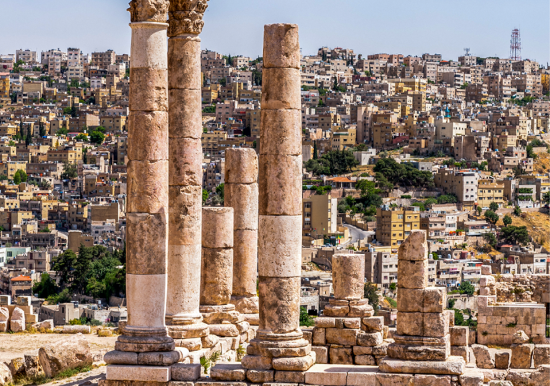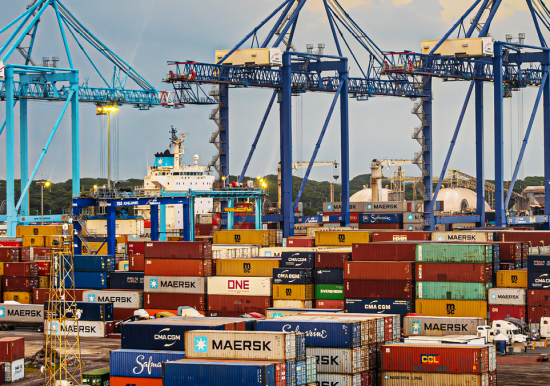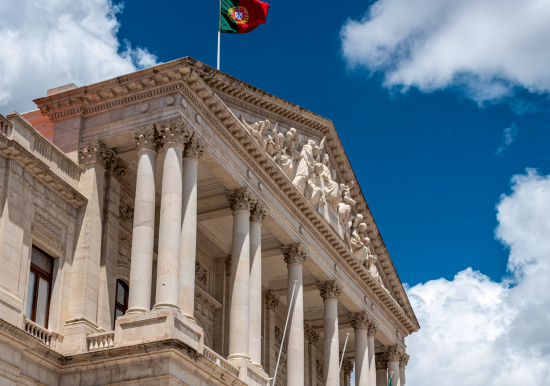
Global Influence & Reputation Country Snapshot: Türkiye

Türkiye’s strategic location at the crossroads of Europe and Asia, has enabled it to play a key role in international trade routes and geopolitical dynamics for centuries. In recent years, the country has made the most of its geographic, cultural, and diplomatic ties to enhance its global influence.
Significant economic growth from 2006 to 2017 has helped propel Türkiye to upper‑middle income status as one of the largest economies in the world.1 Its prosperity has increased its importance in regional and global markets: Türkiye has 23 free trade agreements (FTAs) in force, mostly with Europe and Central Asia, and is actively updating and negotiating new FTAs with nations in Asia as well as with the Gulf Cooperation Council and MERCOSUR.2
On the centenary of the Republic in 2023, the government announced its “Century of Türkiye” strategic initiative.3 A broad vision for Türkiye’s long‑term development and foreign policy goals.4 Century of Türkiye emphasises the country’s role in regional leadership, global economic integration, defence and security cooperation, and soft power expansion.5

Türkiye has consistently ranked in the CGGI top ten for International Diplomacy over the past five years. The country now has the third‑largest diplomatic network in the world with 261 missions, behind only China and the US.6 Since 2003, Türkiye has nearly quadrupled the number of its embassies in Africa to 44.7 Beyond investing in bilateral relations, Türkiye has also expanded its influence through multilateral fora such as the G20, the Council of Europe, the OECD, and is a strategically important member of NATO. New multilateral fora that Türkiye has founded, such as the Organization of Turkic States (OTS), are emblematic of Türkiye’s soft power.8 9 Such diplomatic efforts and multilateral engagements play a crucial role in fostering international cooperation, facilitating communication, and preventing conflicts—in turn advancing national interests while enhancing the country’s reputation abroad.
Türkiye also engages in mediation efforts and diplomatic initiatives in the Middle East, Europe, and North Africa. It has taken in millions of refugees from conflict zones (including more than 3 million from Syria). Such efforts have garnered attention and support from international organisations and other countries, boosting its humanitarian image.10
Türkiye has become a key destination for tourism and for the MICE (Meetings, Incentives, Conferences, and Exhibitions) industry. The country broke its all‑time tourism record in 2024 with more than 62 million tourists drawn to the country’s rich cultural history and unique geography.11 Its capital, Istanbul, has become an aviation mega‑hub: its international airport was recently named the world’s “most connected airport”, with non-stop flights to 309 destinations. It also serves as the base for national carrier Turkish Airlines, which flies to 130 countries—the most by any airline.12
Long considered a bridge between the East and West, Türkiye’s strong performance in this pillar is driven by its strategic positioning as a nation embracing a growing role on the world stage: “the embodiment of a bridge between…tradition and the future”.13
Endnotes
- World Bank Group. (24 April 2025). The World Bank in Türkiye: Overview. https://www.worldbank.org/en/country/turkey/overview
- Republic of Türkiye Ministry of Trade. (n.d.) Free Trade Agreements. https://www.trade.gov.tr/free-trade-agreements
- Republic of Türkiye Ministry of Foreign Affairs. (n.d.) National Foreign Policy in the “Century of Türkiye”: A Synopsis. https://www.mfa.gov.tr/synopsis-of-the-turkish-foreign-policy.en.mfa
- Ataman, M. (2 October 2023). The Century of Türkiye: A New Foreign Policy Vision for Building the Türkiye Axis. SETA Foundation. https://www.insightturkey.com/articles/the-century-of-turkiye-a-new-foreign-policy-vision-for-building-the-turkiye-axis
- TRT World. (29 October 2023). The Century of Türkiye https://www.youtube.com/watch?v=-WdQCGpUx7U (Documentary)
- Republic of Türkiye Ministry of Foreign Affairs. (n.d.) National Foreign Policy in the “Century of Türkiye”: A Synopsis. https://www.mfa.gov.tr/synopsis-of-the-turkish-foreign-policy.en.mfa
- Adeoye, A., Samson, A. & Bhandari, A. (26 August 2024). Turkey’s expanding leverage in Africa. Financial Times. https://www.ft.com/content/6149698f-8192-425e-a6bc-07d1677b6029
- Organization of Turkic States. (n.d.) https://www.turkicstates.org/en
- The OTS promotes cooperation between Turkic‑speaking countries (Azerbaijan, Kazakhstan, Kyrgyzstan, Türkiye, and Uzbekistan) and activities span economic development interests as well as cultural traditions and a shared identity. (See: https://www.economist.com/europe/2024/09/26/turkey-and-central-asia-are-riding-together-again)
- UNICEF. (n.d.) Humanitarian Action for Children (HAC). https://www.unicef.org/turkiye/en/humanitarian-action-children-hac
- Turkish Statistical Institute. (31 January 2025). Tourism Statistics, Quarter IV: October-December and Annual, 2024. https://data.tuik.gov.tr/Bulten/Index?p=Tourism-Statistics-Quarter-IV:-October-December-and-Annual,-2024-53660&dil=2
- Aerospace Global News. (n.d.) Cirium reveals ‘most connected airport’ globally. https://aerospaceglobalnews.com/news/cirium-reveals-most-connected-airport-globally/
- Republic of Türkiye Ministry of Foreign Affairs. (n.d.) National Foreign Policy in the “Century of Türkiye”: A Synopsis. https://www.mfa.gov.tr/synopsis-of-the-turkish-foreign-policy.en.mfa
More Stories


Attractive Marketplace Country Snapshot: Guatemala

